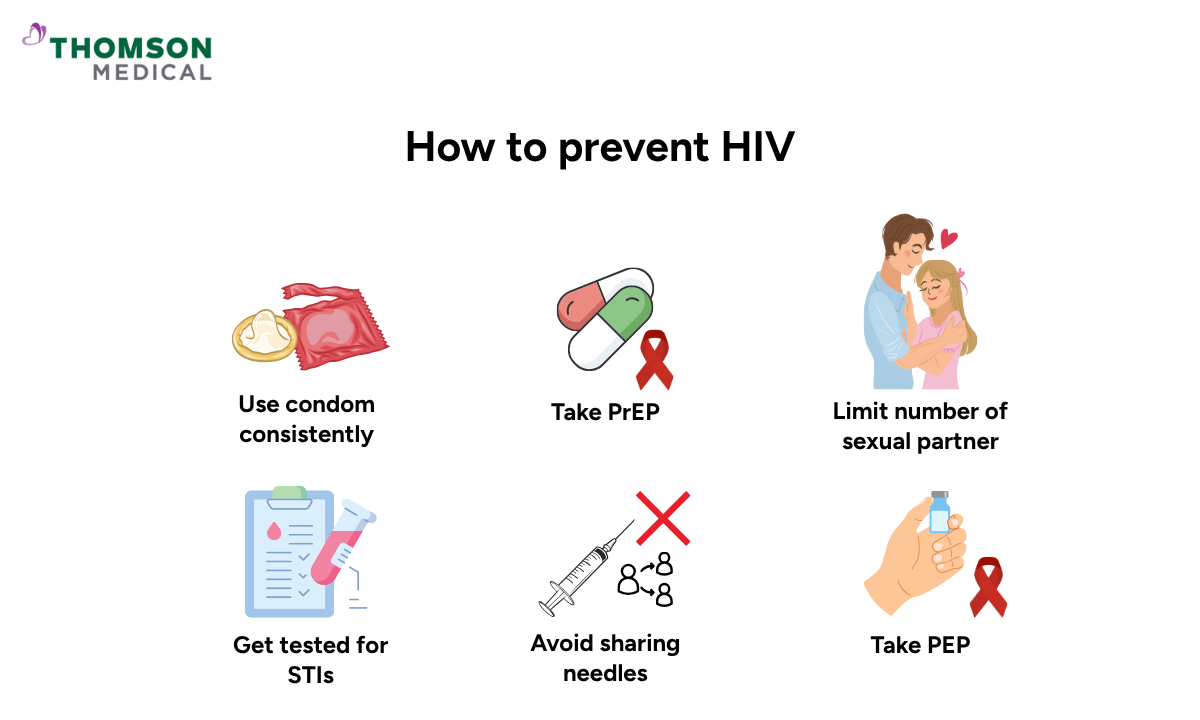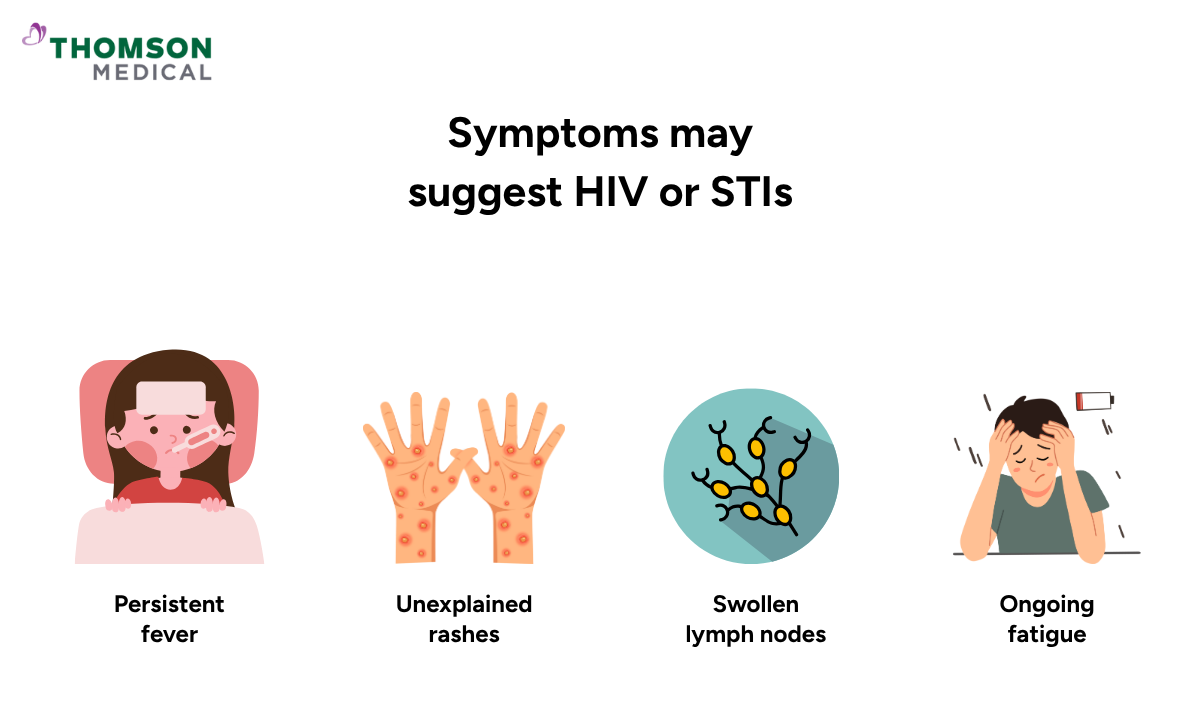HIV (Human Immunodeficiency Virus) is still a major global health problem, but the good news is, it can now largely be prevented. If you know what to do and take the right precautions, you can greatly reduce your risk of infection and enjoy a healthy life. From practising safer intimacy to getting tested for HIV regularly and talking openly with your partner, every step is important for preventing the spread of HIV. In this article, we look at the best ways to stop HIV and keep your health in the long term.
How is HIV transmitted?
HIV is passed on when certain body fluids that contain high levels of the virus are exchanged. These include blood, semen, vaginal and rectal fluids, and breast milk. It’s also essential to understand the role of viral load, which is the amount of HIV present in the blood. A higher viral load increases the likelihood of transmission, while people on effective treatment with an undetectable viral load cannot pass on the virus to others.
The most common way the virus is spread is through unprotected vaginal or anal intercourse, where the virus can enter the bloodstream through the mucous membranes. HIV can also spread when needles, syringes or other injecting equipment that has been contaminated with infected blood is shared.
Also, if an HIV-positive mother doesn't get treatment during pregnancy, childbirth or breastfeeding, she can pass the virus to her baby. However, with the right medical care and treatment to reduce her viral load to undetectable levels, this risk becomes extremely low.
Thanks to thorough blood tests and medical safety standards, the risk of getting HIV from blood transfusions or organ transplants is now very low in countries like Singapore. But in places where there are not many screening processes, this could be a way that the virus spreads.
How is HIV not transmitted?
Many people are concerned about catching HIV through everyday contact, but HIV is not easily spread. The virus cannot survive long outside the human body and does not live on surfaces. This means that normal, daily interactions with people living with HIV poses no risk to others. HIV is not spread through:
Hugging, kissing, or shaking hands
Sharing utensils, cups, or food prepared by someone living with HIV
Sitting next to someone with HIV or using the same toilet
Mosquito bites or contact with animals
Saliva, sweat, or tears
These facts are important for busting myths and reducing stigma surrounding HIV. Fear and misinformation often cause unnecessary anxiety and discrimination, but with accurate knowledge, we can foster greater understanding and support for people living with HIV.
How to prevent HIV?

Preventing HIV begins with awareness and taking practical steps to reduce your risk. Here are the most effective ways to protect yourself and your partner:
Use condoms consistently:
Using condoms correctly and consistently during intercourse is one of the most effective ways to prevent HIV.
Condoms act as a protective barrier that stops the exchange of semen, vaginal, and rectal fluids, thereby reducing the risk of HIV and other sexually transmitted infections (STIs).
Take PrEP (Pre-exposure Prophylaxis):
PrEP is a daily medication that is designed for people who are at higher risk of HIV. This includes people who have an HIV-positive partner or people who have sexual contact without always using a condom. If you take PrEP as prescribed, you can lower the risk of getting HIV by over 90%.
Limit the number of sexual partners:
Reducing your number of sexual partners decreases your exposure risk. The fewer partners you have, the lower your chances of encountering someone with HIV or another STI.
If you are in a relationship with someone and that person has tested HIV-negative, you will not have HIV as well, and this is another effective way to stop HIV from spreading.
Practise abstinence:
Choosing abstinence, which means refraining from sexual activity, will completely eliminate the risk of sexual transmission.
While this approach may not be suitable for everyone, it remains the only method that guarantees full protection.
Get tested and treated for other STIs:
Infections like gonorrhoea, chlamydia, and syphilis can make it more likely that HIV will be passed on from one person to another.
This is because these infections can cause inflammation or sores that allow the virus to enter the bloodstream more easily. If you get diagnosed early and start treatment, you are much less likely to have a stroke.
Avoid sharing needles or injecting equipment:
Never share needles, syringes, or other injecting tools. Even a small amount of infected blood is enough to transmit HIV.
Always use new, single-use equipment for medical procedures, tattoos, or recreational drug use to stay safe.
Take PEP (Post-exposure prophylaxis) if recently exposed:
If you think you may have been exposed to HIV, PEP is an emergency preventive treatment that can help. It involves taking antiretroviral medication for 28 days, and it must begin within 72 hours of possible exposure to be effective.
While PEP doesn’t guarantee prevention, it greatly reduces the risk of infection.
If you’re concerned about your risk of HIV, you can request an appointment with Thomson Medical to learn more about prevention options such as PrEP or PEP.
When should I see a doctor?

You should see a doctor as soon as possible if you believe you may have been exposed to HIV. This could be after unprotected sex, sharing needles, or any situation where there could have been blood-to-blood contact. A healthcare professional can assess your level of risk and, if suitable, prescribe PEP to help prevent infection.
If you have intercourse with more than one person, or if you have intercourse with someone whose HIV status you don't know, it's important to get tested for HIV regularly, even if you don't think you need to. HIV can stay in the body for years without showing any symptoms. So, it's important to get tested early so that you can start treatment as soon as possible and make sure you stay healthy in the long run. If you get treatment early, there's less chance of passing the virus to other people.
You should also consult a doctor if you experience symptoms that may suggest HIV or another sexually transmitted infection (STI), such as:
Persistent fever
Unexplained rashes
Swollen lymph nodes
Ongoing fatigue or weakness
Our sexual health specialists
Loading...
FAQ
What are 5 effective ways to prevent HIV?
There are several proven strategies to lower the risk of HIV transmission:
Use condoms consistently and correctly during intercourse to prevent the exchange of bodily fluids that carry the virus.
Take PrEP (pre-exposure prophylaxis), a daily medication that offers strong protection for people at higher risk.
Limit your number of sexual partners or maintain a mutually monogamous relationship with a tested HIV-negative partner.
Avoid sharing needles or injecting equipment, which removes one of the most efficient routes of transmission.
Get tested and treated for other sexually transmitted infections (STIs), as untreated infections can increase the risk of HIV.
What happens if you are HIV-positive?
If the test is positive, it means that the person has HIV. If you don't get treatment, it can slowly make your immune system weaker. This means you are more likely to get infections and some cancers. However, if you take antiretroviral therapy (ART), the virus can be made undetectable. This means that your immune system will stay strong, you will remain healthy and you will not be able to pass the virus on to your sexual partners. If you start taking HIV medication as soon as you can and keep taking it regularly, it can become a chronic condition that you can manage.
Can HIV be prevented 100%?
The only way to completely avoid HIV transmission through sexual contact is by practising abstinence, as this eliminates all risk of exposure. For those who are sexually active, combining preventive methods such as using condoms, taking PrEP, and ensuring both partners are tested and HIV-negative can reduce the risk to near zero. Avoiding shared needles and ensuring safe blood transfusions are also vital for prevention. While no single method apart from abstinence is 100% effective, modern preventive tools make HIV transmission highly unlikely.
Can I live a normal life with HIV?
Yes. If you have HIV, you can live a long, healthy, and fulfilling life with access to modern treatment. Antiretroviral therapy keeps the virus under control, allowing people to work, study, form relationships, have children and plan for the future. Those who start treatment early can expect to live as long as people without HIV.
Are small cuts on fingers an HIV risk?
The risk of getting HIV from a small cut on the finger is very low. HIV cannot survive long outside the human body and needs to be in direct contact with the blood to cause an infection. You cannot get HIV from everyday contact with surfaces, dried blood or objects. For an infection to happen, a cut would have to come into contact with blood that contains a lot of viruses. However, this is very unlikely in everyday life. Keeping minor cuts clean and covered with a bandage is enough to stop them from getting worse.
Is HIV hard to catch?
Yes, HIV is not easily transmitted. It is a fragile virus that only spreads in certain ways, like through unprotected sex, sharing needles, or direct contact with infected fluids. It is safe to hug, kiss or share food with people you don't live with. HIV is much harder to catch than common infections like the flu or a cold. This is because HIV cannot spread through the air, and it cannot be passed on by touching someone or sharing the same environment.
The information provided is intended for general guidance only and should not be considered medical advice. For personalised recommendations and tailored advice based on your unique situations, please consult a specialist at Thomson Medical. Request an appointment with Thomson Medical today.
For more information, contact us:
Thomson Specialists (Women's Health)
Thomson Women's Clinic (TWC)
- Novena:
6592 6686 (Call), 8611 8986 (WA) - Bukit Batok:
6569 0668 (Call), 8686 3525 (WA) - Choa Chu Kang:
6893 1227 (Call), 8282 1796 (WA) Jurong:
6262 8588 (Call), 6262 8588 (WA)- Katong (female doctor):
6970 2272 (Call), 8611 9020 (WA) - Punggol:
6243 6843 (Call), 8811 0328 (WA) - Sembawang: 6753 5228
- Sengkang: 6388 8125
- Serangoon (female doctor): 6382 3313
- Tampines: 6857 6266
- Tiong Bahru: 6276 1525
